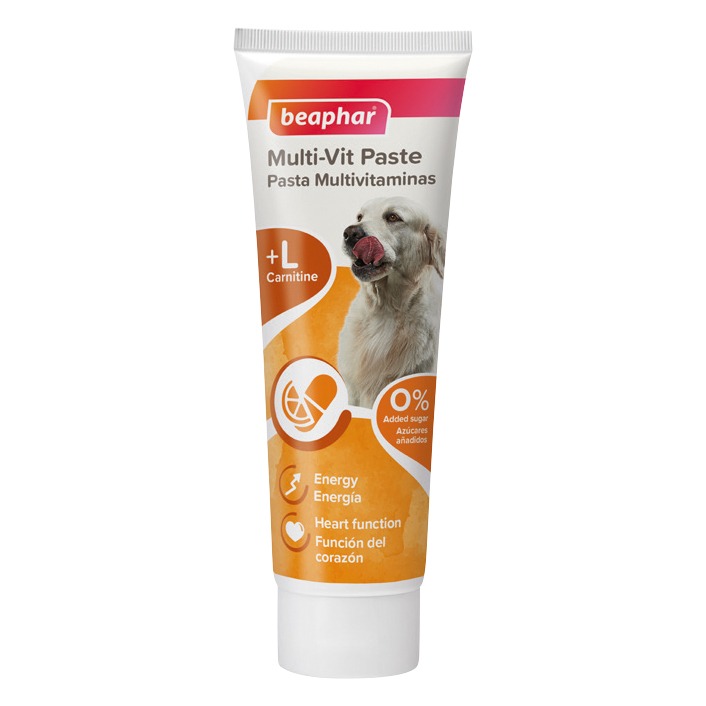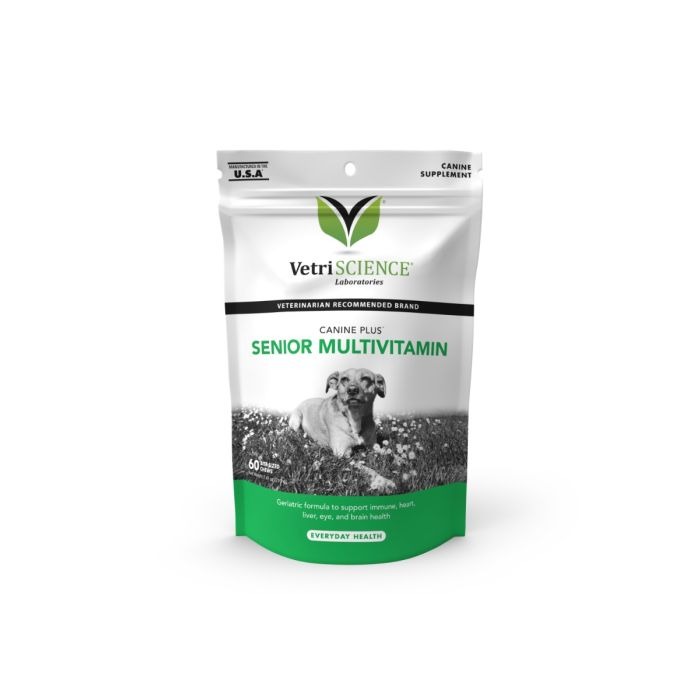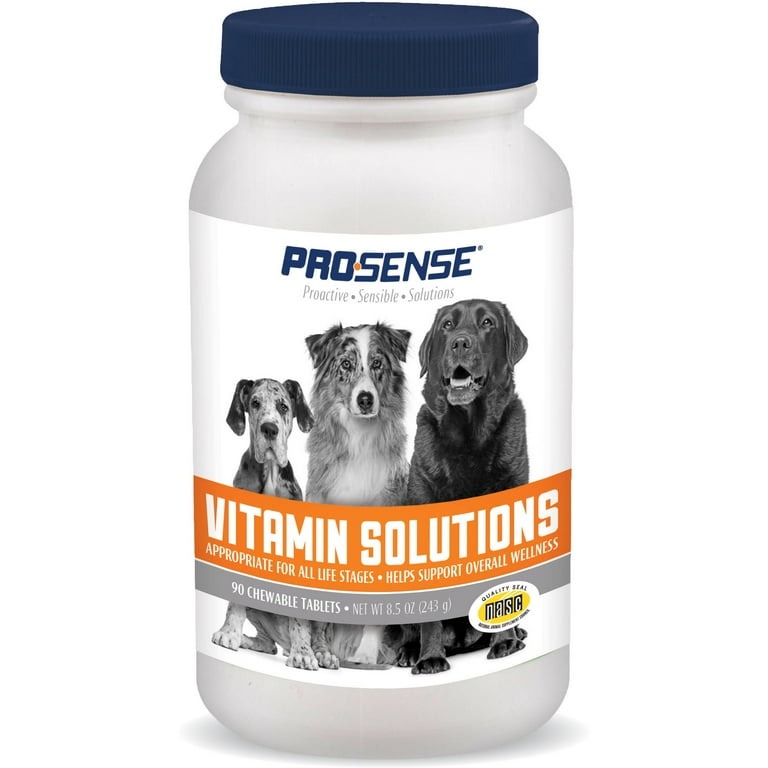
IytOverview of Canine Nutrition
Just as humans need a balanced diet, dogs do too. Canine nutrition is vital for a dog’s overall health. It involves a range of nutrients that support their bodily functions. Dog vitamins are an essential part of this. Dogs need these vitamins for growth, energy, and to prevent diseases. Vitamins work alongside minerals, proteins, fats, and carbohydrates to keep your furry friend healthy. It’s key to know which nutrients dogs can’t make naturally. These are the vitamins they must get from their diet. Yet, it’s not just about the vitamins. The right balance is crucial. Dogs need a mix of meat, grains, and vegetables. This mix provides them with a complete set of nutrients. We will look deeper into specific vitamins dogs need next. Understanding these will help you make the best choices for your dog’s diet.
Key Vitamins for Dogs and Their Benefits
To ensure your dog thrives, including key dog vitamins in their diet is essential. Each vitamin plays a distinct role in canine health. Here’s a look at some crucial vitamins and their benefits.
Vitamin A
Vitamin A supports vision, growth, and immune function. It also helps maintain healthy skin and a glossy coat. Your dog can get this vitamin from carrots, spinach, and liver.
Vitamin B Complex
B vitamins are a group with many roles. They aid in energy generation, heart health, and nervous system function. Meat, eggs, and certain vegetables are good B vitamins sources.
Vitamin C
Dogs can normally produce Vitamin C, but extra can aid in stress situations. It acts as an antioxidant, supporting the immune system. Citrus fruits, though not all are dog-safe, and leafy greens contain Vitamin C.
Vitamin D
It helps your dog absorb calcium, supporting bone health.It is in fish oils and fortified foods. Too much can be harmful, so moderation is the key.
Vitamin E
This vitamin is critical for cell function and fat metabolism. It combats oxidative damage and supports the eyes and muscles. Sources include plant oils and leafy green veggies.
Vitamin K
Vitamin K contributes to blood clotting and bone health. It can be found in foods like liver and green leafy vegetables. Always monitor your dog’s intake to avoid over-supplementation.
Signs of Vitamin Deficiency in Dogs

Just like humans, dogs can suffer from vitamin deficiencies. These deficiencies can lead to various health problems. It’s crucial to recognize the signs so you can respond quickly. The symptoms of vitamin deficiency in dogs vary based on the specific vitamin they lack.
Recognizing the Symptoms
Symptoms of vitamin A deficiency might include poor vision or skin issues. Lack of vitamin D can result in bone problems like rickets. A shortage of vitamin E could cause muscle degeneration. Low levels of vitamin K might lead to bleeding disorders.
- For vitamin A deficiency, look out for dull coats or night blindness.
- If your dog has vitamin B complex deficiency, they might have lethargy or anemia.
- Symptoms of vitamin C deficiency, while rare due to internal synthesis, can include weakened immunity.
- Signs of vitamin D deficiency include weak bones and teeth.
- Watch for signs of muscle weakness or reproductive issues for vitamin E deficiency.
- Observing frequent nosebleeds or bleeding gums could point to a lack of vitamin K.
It’s essential to consult your vet if you notice any of these symptoms. They can provide a definitive diagnosis and guide you on the right treatment path. This will often involve diet adjustments or supplementation. Remember, prevention is always better than cure. Feeding your dog a diet rich in dog vitamins can help avert these issues.
The Role of Supplements in a Dog’s Diet
While a well-rounded diet is key, sometimes even the best diets can fall short. This is where supplements step in. Think of them as a nutritional safety net for your furry friend. They help fill any gaps. Even with the best efforts, some dogs might not get enough dog vitamins from food alone.
Supplements can support various body functions in dogs. For example, they may aid with digestion, joint health, and coat quality. Older dogs often benefit from supplements. As dogs age, their bodies become less efficient at absorbing nutrients. Supplements can help meet their increased dietary needs.
It’s not just senior dogs that might need an extra boost. Puppies, pregnant dogs, and active breeds also have unique needs. They benefit from customized supplementation. But, it’s easy to overdo it with supplements. More is not always better. Too many dog vitamins can cause harm.
Always check with a vet before starting any supplement routine. They can run tests to spot any deficiencies. This helps tailor the supplementation plan to your dog’s specific needs. Your vet will consider your dog’s diet, health, and lifestyle. In some cases, they might even recommend a blood test.
Keep in mind, not all supplements are created equal. Look for quality products. Your vet can point you to reputable brands. This ensures your dog gets the true benefit of any added vitamins. Choosing the right supplement can make all the difference. It can help your dog live a long, happy, and healthy life.
How to Choose the Right Vitamins for Your Dog

Choosing the right dog vitamins is not a one-size-fits-all task. You need to consider several factors to make sure your dog is getting what they need. Here are steps to help you choose the right vitamins for your furry friend:
Understand Your Dog’s Needs
Every dog is unique. Age, breed, health, and lifestyle all play a role. Puppies may need different vitamins than senior dogs. Active breeds often need more energy-boosting vitamins. Dogs with health issues might need specific support. Always start by understanding your dog’s specific needs.
Consult Your Veterinarian
Your vet can assess your dog’s health and diet. They can test for deficiencies. Based on the results, they might suggest specific vitamins. They can also advise on the right dosages. With your vet’s help, you can avoid overdosage or wrong supplementation.
Read Labels Carefully
When picking vitamin supplements, read labels. Look for high-quality ingredients. Avoid fillers and artificial additives. Choose products with clear label information. This way, you know what your dog is consuming.
Consider Diet First
Always remember, supplements are extras, not replacements. Your dog’s regular diet should be their main vitamin source. Use supplements only to fill nutritional gaps. Put effort into providing a well-rounded diet first.
Go for Trusted Brands
Reputable brands are trustworthy. They invest in safety and quality testing. Ask your vet for brand recommendations. They can tell you which brands offer reliable dog vitamins.
Monitor Your Dog’s Response
After starting vitamins, watch your dog closely. Look for changes in energy, coat quality, and overall health. If you see any adverse reactions, consult your vet right away.
In conclusion, to choose the right dog vitamins, assess your dog’s needs and consult your vet. Read labels for quality assurance and focus on a balanced diet. Opt for trusted brands and monitor your dog’s health. Taking these steps will help you provide the best for your companion.
Feeding Your Dog a Balanced Diet
A balanced diet is the foundation of your dog’s health. Getting the right mix of dog vitamins, protein, fats, and carbs is key. Here’s how to do it:
- Start with high-quality dog food. It should offer a base for good nutrition.
- Include a variety of foods. Meats, grains, and vegetables give a range of nutrients.
- Adjust portions to your dog’s size, breed, and activity level.
- Lean meats are great for protein. They help build muscle and repair tissue.
- Whole grains provide energy. They fuel your dog’s daily activities.
- Vegetables are rich in natural dog vitamins and minerals. They support overall health.
- Healthy fats are a must. They keep your dog’s coat shiny and support brain health.
- Always ensure fresh water is available.
- Avoid human food. Some can be toxic to dogs.
- Limit treats. They can upset the balance of your dog’s diet.
- Watch your dog’s weight. Adjust their diet if they gain or lose too much.
Remember to consider age, health status, and specific needs. Puppies, seniors, and dogs with health issues have different dietary requirements. Consult a vet to tailor your dog’s diet perfectly. They can help you determine the right balance to keep your dog in top shape. Feeding a balanced diet goes a long way in preventing vitamin deficiencies and maintaining your dog’s health, energy, and happiness.
Expert Tips for Supplementing Your Dog’s Diet

Incorporating the right supplements into your dog’s diet can be beneficial. However, it must be done thoughtfully. Here are expert tips for effectively supplementing your dog’s diet with essential dog vitamins.
Start with a Quality Diet
Begin with a high-quality dog food as the foundation. Ensure the food is complete and balanced according to AAFCO standards. A good diet reduces the need for many supplements.
Know When Supplements are Needed
Puppies, seniors, and dogs with health issues may benefit from supplements. Active dogs or those recovering from illness may also need a boost. Learn about your dog’s life stage and health needs.
Choose Supplements Wisely
Pick supplements made for dogs, with high-quality ingredients. Check for approval from veterinary associations. Avoid products with excessive fillers or artificial additives.
Opt for Natural Sources When Possible
Whole foods can be great natural sources of dog vitamins. Consider adding fresh vegetables and lean meats appropriate for dogs to their diet.
Consult Your Vet
Discuss supplements with your vet. They can advise on what’s necessary and safe based on your dog’s health status and diet.
Gradually Introduce Supplements
Introduce any new supplement slowly. Watch for any reactions or changes in your dog’s behavior or health.
Monitor Your Dog’s Health
Keep an eye on your dog’s reaction to supplements. Look for improvements in energy, coat, and overall wellness. If problems arise, stop the supplement and talk to your vet.
Avoid Over-Supplementation
Too much of a good thing can be harmful. Stick to recommended doses. Never give your dog human vitamins without veterinary approval.
By following these tips and understanding the role of dog vitamins, you can make informed decisions about supplementing your dog’s diet. Remember, the key is a balanced approach to ensure your furry companion stays happy and healthy.





